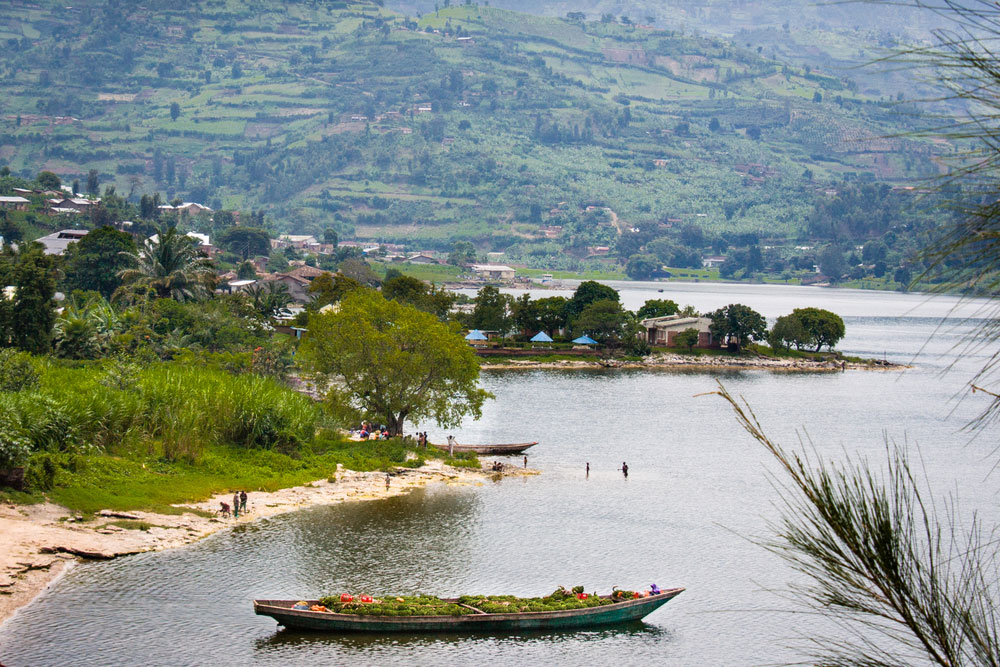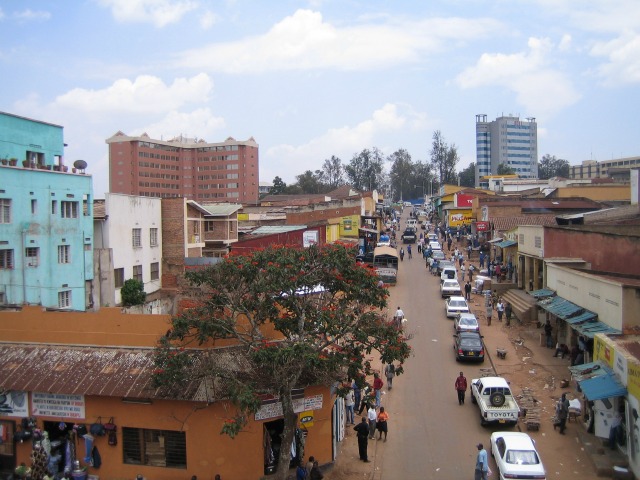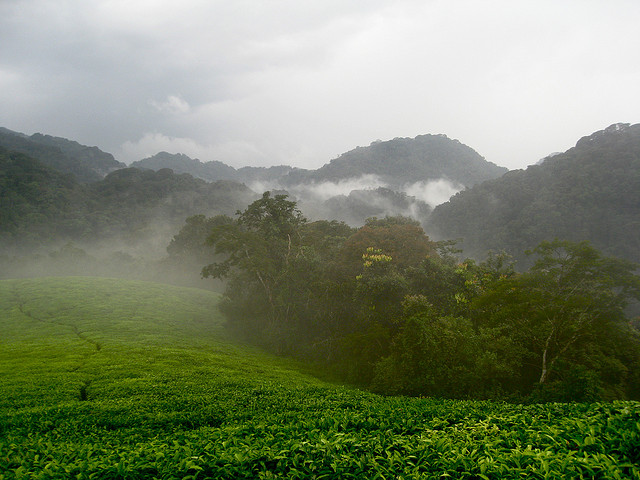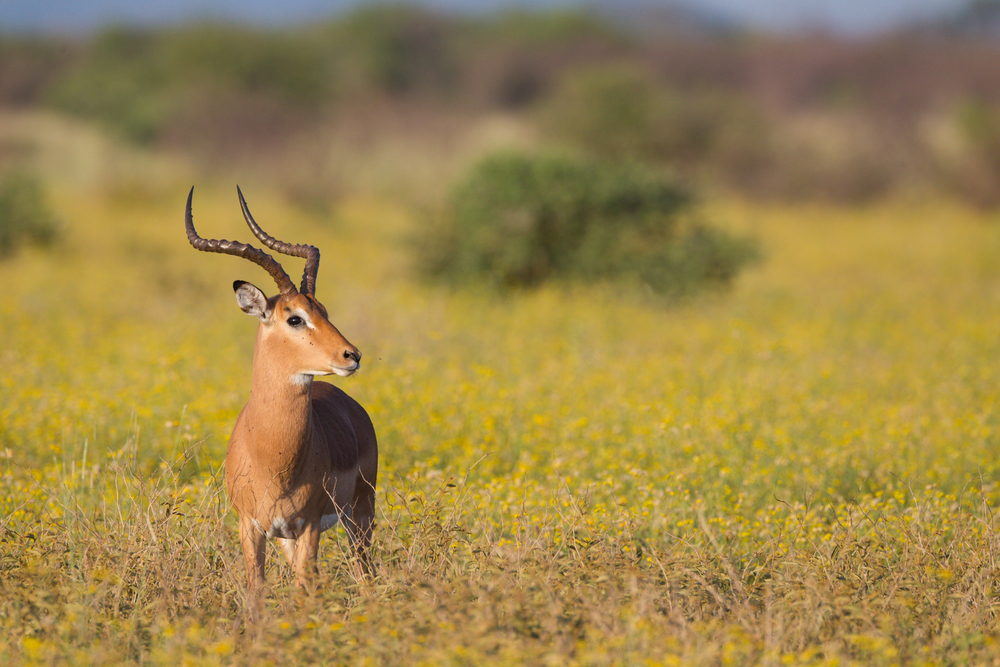Though Rwanda was once racked by violence and sorrow, today it is a land rich in geographical anomalies, stunning wildlife, and remarkably resilient people. Here are 10 facts about Rwanda, from the historically tragic, to the touristic, to the just plain fun!
This article originally appeared on AFKInsider.com.

Virunga Mountains, Rwanda (en.wikipedia.org)
A Brief History
Before it was colonized in the 19th century, Rwanda was a centralized Tutsi monarchy. The Tutsi were generally the wealthier ethnic group, ruling over the Hutu and the Twa. Colonial rule from first the German Empire, then the Belgians in the early 20th century led to a eugenics-themed promotion of ethnic superiority of the Tutsis over the Hutus. This suppression led to revolts by the Hutus, and in 1962 Rwanda achieved its independence.

Shutterstock
The Rwandan Genocide
The rise of the Hutus and their counter-repression of the Tutsis throughout the 60s, 70s, and 80s led to a horrible breaking point. In 1994, a countrywide cleansing of the Tutsi ethnic group took place, resulting in the massacre of approximately one million people.

Ntarama Genocide Memorial Site (commons.wikimedia.org)
Visiting and Remembering
Though the country was wrecked by violence and sorrow, its resilience is made proof through the Kigali Genocide Memorial in the country’s capital city. A cemetery holding the remains of over 258,000 slain, an educational center, and a memorial garden should be a mandatory and meditative stop on the way into the country.

Central Kigali (rw.wikipedia.org)
Kigali is fun!
Known as a remarkably safe city, Kigali holds over one million vibrant souls, and is quickly becoming an East African mecca for finance, tourism, and expats. The cafe scene is climbing in popularity, and nightlife is one for the books. There’s even a birds-eye natural view of the city if you climb up Mount Kigali.
What’s the language? Rwandan?
Nope! The mother tongue is Kinyarwanda, and pretty much everyone has this language in common. Because of colonization, most speak French as the functioning language. A movement to make English the official language started in the latter half of this decade, and many schools and businesses have been revolutionizing their language structures.

Fufu (en.wikipedia.org)
Meat and Carbs, Yum!
If you’re a vegan or concerned about your starch intake, then save your “cheat” days for a trip to Rwanda. Basically, you’re either getting heaping loads of boiled Matoke (East African savory green banana) slathered in isosi ubunyadbwa (boiled peanut sauce), millet porridge, sweet potatoes, beans, fufu (dough made from cassava flour to be pinched and dipped in sauce). Most restaurants in the city serve a wide array of international cuisines, like Indian or Chinese. But it’s the meat dishes, like brochettes which will make your life better…just look at the photo above!

Gorillas (commons.wikimedia.org)
Gorillas
If you fancy yourself as David Attenborough, or better yet Dian Fossey, then here’s a brief rundown on the gorilla experience. Guided tours can be expensive, although private visitations can be arranged with the proper permits. Once in lush, cloud-covered Volcanoes National Park, one can spot up to 380 gorillas, or 19 different families. These include the famous, enormous silverback.

Nyungwe Rain Forest (Flickr/Rachel Strohm)
Rainforests
Nyungwe National Park in the southwestern part of the country features a forest several thousand years old. Well-preserved and protected, it’s wide variety of biomes allow for 13 primate species, over one thousand plant types, nearly 100 mammal varieties, and many different reptiles and amphibians.
Safari
This tiny country even holds room for so much more wildlife, and a fulfillment of the “classic” African safari. Akagera National Park holds wetlands and savannas which hosts over 8,000 animals — impala, Masai giraffe, antelope, zebra, hippo, and crocodile. Elephants aren’t so prevalent, although you may run into the most famous guy in the park: Mutware, the 50-something year old elephant stompin’ round.

Rwanda Intore Dancers (www.wikimedia.org)
A Few More Random Facts
Plastic bags are illegal in Rwanda and their parliament has a higher percentage of women in it (about 56%) than Sweden. It is the most heavily populated country on the continent, though it’s only the size of Vermont. Their president is elected every seven years. Finally, it’s a wonderment of education, the human spirit, and countless unforgettable experiences.
Want to discover the finer side of Africa? Sign up for our weekly newsletter.

